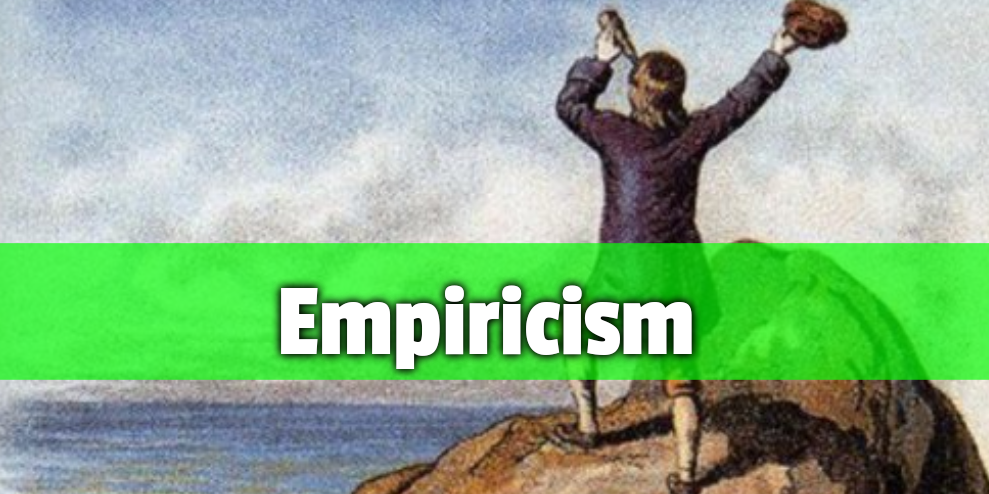Empiricism

Theory that bases scientific knowledge on the separation of "objective" facts -presumably external to thought - and "subjective" analysis, presumably proper to the individual mind. As the subjective is individual, the universalization of results requires either a metaphysical confusion between the facts themselves and the concepts or categories with which they are described or in which they are grouped, or else to accept the impossibility of a theoretical universalization of the empirical results without a prior approximation to the totality.
Marxist critique of empiricism
By starting from a fracture of reality between the objective -supposedly natural- and the subjective -supposedly individual- empiricism creates its own dead end.
When one gets used to assigning a certain type of reality, outside our mind, to √-1, or to the fourth dimension, it is no longer of great importance to go a step further and also accept the spiritual world of mediums.
Frederick Engels. The Natural Sciences in the World of the Spirits, 1878
The "exteriority" of one part of reality over another makes it impossible to assert a reality and therefore a theory capable of explaining it in all its interrelations simultaneously. This is the basis of the impossibility of developing a "complexity theory" or even a more modest "systems theory", from the empiricist epistemology. However great the contempt towards all theoretical thought may be, without it it is not possible to relate two natural facts to each other or to penetrate the link between them. The only thing that can be asked is whether the thought is correct or not, and there is no doubt that disdain for theory constitutes the surest way to think in a naturalistic and, therefore, false way.
Frederick Engels. The Natural Sciences in the World of the Spirits, 1878
The starting dualism of empiricism is translated into its own historical dichotomy: Either it has to start from abstractions and ex-ante concepts that it can only arbitrarily link to its own supposedly "analyzed" experience post-hoc...
It's the old tale. First you turn all sensory things into abstractions and then you want to know them through the senses, see time and smell space. The empiricist is so imbued with the habit of empirical experience that he believes he is still in the field of sensory experience when he is working with abstractions. Frederick Engels. Dialectics of Nature.
...Or else it becomes a casuistry that has to renounce any form of universal knowledge, paralyzed by the empirical possibility of its refutation. We have seen that the starting point and fundamental premise of the philosophy of empiricism is subjective idealism. The world is our sensation: such is the fundamental premise, veiled, but in no way modified by the word "element" and by the theories of "independent series", of "coordination" and of "introjection". The absurdity of this philosophy is that it leads to solipsism, to the recognition that only the individual who philosophizes exists.
Lenin. Materialism and empiriocriticism, 1908.
The final form of empiricism ends up writhing in a world where "methodological solipsism" passes from a scientific premise into reigning over an increasingly divided society.
As long as each alleged miracle has not been explained, there is still enough room for them to go on.
Frederick Engels. The Natural Sciences in the World of the Spirits, 1878
That is to say, empiricism can only overcome the artificial fracture that it presupposes in reality through metaphysics or turn into the most brutal relativism. That is why the opposition "modernity-postmodernity" is not really such, but a consequence, present already from its own origins, of the approach to knowledge of the bourgeoisie.
http://dictionary.marxismo.school/Empiricism